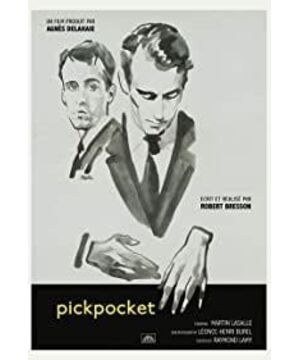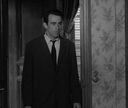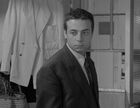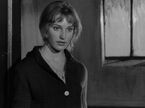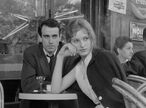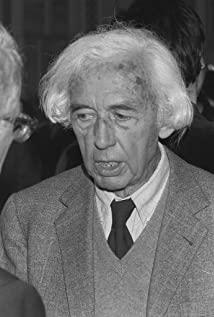Mitch took the money he had stolen to his mother's house. Her mother was bedridden for many years, and the neighbor Jeanna (who looks pretty) came to help him open the door. He hesitated at the door and finally did not go in, although Jeanna told him that his mother had a bad time. He just handed almost all the money to Jeanna and asked her to pass it on.
Mitch is looking for a job, and he finds his friend Jack. "He is a very good person, but I have been trying my best to avoid him." Jack took him to talk with his police friends, and the result is naturally predictable. Miche thinks that thieves are good for society, and he likes to do it.
In the subway, he saw another clever trick of his colleagues-using a newspaper to block the purse that stolen the suit inner pocket of the person in front of him. It was very difficult! Mitch looked fascinated, and pondered carefully at home. Then he tried the same way. The first time he didn't succeed, he succeeded the second time, which gave him a lot of confidence. Jack came to visit, flipping through a book on Mitch's desk—The Pickpocket Prince (I forgot the name). Mitch said he admired him very much. Jack borrowed the book and told him when he returned that the policeman would also watch it. Mitch went to give him the book, and the two separated because of their disagreements with the protagonist in the book.
After he succeeded again, the owner of the wallet also found out and asked for the wallet calmly. During this period he received a letter from Jeanna to him. His mother was critically ill and finally passed away. The relic was moved back to his residence-just some paper, letters and books. "It doesn't seem to be back to the original point."
Mitch met a skilled colleague, and he taught him all difficult movements. Mitch is fascinated by this elegant art of stealing. Soon, his skills were not the same as before. One turn is a wallet, and one hand is a watch. He cooperates happily with his counterparts.
Mitch changed from a lone ranger to a three-person team. From the bank to the train, the three people cooperated very well, and the movements were graceful, like a dance that had been rehearsed for a long time. The police found him again and told him that his mother had reported the case with Jeanne. His mother's only savings were stolen, but the lawsuit was later withdrawn because they knew he had stolen. He said he had caught him in the racecourse and let him go. He hoped that he would think about his future, Mitch was furious and denied being caught.
Mitch made an appointment with Jack and Jeanna, and the three of them went out together. Mitch abandoned them for a watch. He didn't miss a hand, but fell (perhaps because he was found and fell while escaping). Jack came back to the house to find him. Mitch understood that Jeanna and Jack were in love. Up.
Mitch tried to act alone again, but found that it didn't seem to work, so he continued to work with them.
One day at the subway station, he found that his colleague was arrested, which shocked him greatly. He returned home and took out all the stolen money to travel. Although he was worried about whether he could reach the station safely, he went to London after all and spent two years of drinking and drinking.
He returned to his home two years later, the door was unlocked, no one was there, and there was a baby on the ground. It was Jeanna's, and the child's father disappeared. Jeanna said, "Love is an illusion." Looking at Jeanna's beautiful and sad face, Mitch said: "I am here."
He started working, and most of the money from the job was naturally given to Jeanna. Life seems very peaceful.
By chance, Rimiche met the police again. The police invited him to a horse race. The first time Mitch lost, and the police won. The police showed him the money he won and asked him to go again. Mitch hesitated, and finally reached for the inner pocket of the police suit. This "sly-eyed guy" handcuffed him when he succeeded.
Jeanna went to the prison to visit Mitch and said closely, "I regret being arrested because of my negligence." He kissed Jeanna's forehead, and Jeanna held his hand through the iron fence. "I always want to get closer to you, but I always go further and further away."
The plot of the movie was introduced like a running account. Now let me express a little humble opinion.
The film shows the protagonist's psychological activities with a lot of narration, making it more like a novel. This is rare in the film industry. It's just that the dialogue and narration in this film seems to be too much compared to many of his later adaptations of Doltoyevsky's novels. If it can be more concise, perhaps the film will give people a much better sense of dullness.
At first glance, it seems that Mitch is very similar to the protagonist of Camus's "The Outsider." He doesn't care about anything. He doesn't steal because of the embarrassment of his life. He likes to steal. He thinks that stealing can bring everything back to square one. People should be "naked and unconcerned".
But then we can find that Mitch cares about his mother very much. He said: "I love him more than I love myself." In fact, he has always loved Jeanna. When Jeanna was most helpless, he only quietly gave Gave her a salary bag.
Bresson may want to show a person's confession process, he let the protagonist gradually toward the light. The thief always gets caught in the end, which is common sense, so Mitch is in jail when he shouldn't be in jail the last time. And I thought it was a reappearance of a sad society where a real villain was ultimately defeated by a hypocrite.
Jack seems to be an excellent young man with a fixed career and a friend who represents integrity like the police. There is a beautiful and kind girl Jeanna who loves him, but the result? He abandoned Jeanna, abandoned the child, let Jeanna wander in loneliness with the child alone.
The policeman also seemed to be very upright. He repeatedly persuaded Mitch to return to the right path. But when Mitch’s did give up the joy of stealing and took on the lives of Jeanna, the child, and himself with clean money, what did the policeman do? He lured Mitch into committing a crime again, and he set up a very delicate situation. When a person regards stealing as an interest, then the opportunity is very tempting to him. Miche is not short of money, but it will inevitably be itchy. In the movie, we can see Mitch raising and lowering his hands. He knows that the guy's eyes are very cunning, but he still did. Most thieves are opportunists. The greater the risk, the greater the fun. So I can understand Mitch’s behavior, but I can’t stand the police’s "good intentions".
Suddenly I thought of "Police and Hymns." Mitch is as pathetic as the poor man. It is impossible to live in such a society. I don't want to evaluate our society too much here, I just have a sympathetic sorrow. It is ironic that Bresson himself is a devout Catholic, but the local archbishop does not recognize him.
Bresson used a lot of close-up shots to show their theft, smooth and elegant like a ballet, almost everyone would not hate Mitch. He is really a handsome and elegant thief. Bresson glorified him as if he was a priest, perhaps a priest. He wants every audience to confess to themselves after watching the film, but this is just more ironic in my opinion.
There is very little music used in this film, but it is very classic. I don't know what it is, I only know that it is classical music in the Baroque style of the 16th and 17th centuries. The film actually wants to create an artistic conception that is more silent than sound. Bresson did it.
I heard that the actor in this film is a non-professional actor and not a professional thief. This is really surprising.
Director Bresson’s films are very similar in style, just watch one or two, and watch more will be numb, although every time his male and female protagonists are very beautiful.
View more about Pickpocket reviews


